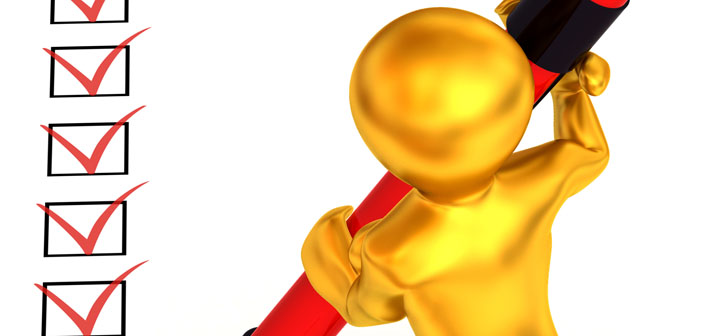No, it’s not another Shakespeare reference (keep up at the back or at least read some old columns of mine to make sure I’m not repeating myself) but, instead, a reference to the many self analysis questionnaires we use on our training.
Of course, such things are useless.
First, we are the wrong person to fill out such a questionnaire (which I will now refer to as a “thing” as I can spell “thing” first time) just like we are the wrong person to assess our own abilities. Just think of how you think you think you sound when you speak; most people hear themselves and say, hey, I don’t sound like that but, guess what, yes, you REALLY do sound like you sound when you hear yourself in a recording. Honest. Awful, isn’t it? No, that’s you, you just don’t want it to be you.
And those unflattering photos? No, not those… well, they may be unflattering but are a better depiction of who you are than the vision of beauty held in your imagination.
(You hear yourself inaccurately, through your skull. Everyone else gets us perfectly. And, no, I look more like Jeremy Kyle that George Clooney in reality just not in my head.)
Do you know you don’t look like that? Or sound like that?
So, getting you to complete a thing about your own behaviours is akin to asking a certain President to be modest about himself and expecting that to happen. In other words, it’s going to be inaccurate.
But we insist on using them in training. Why? Well, they waste a bit of time, give me a bit of a rest and… no, not really (that was a writing joke), they are good as a starting point to open up a discussion, especially if there are a group of people in the training who already work together who can comment on their colleagues based on their experience and can therefore share their views on behaviours.
But they, “things” that is, and their results are only a starting point.
The findings are not water-tight or accurate, partly for the reasons above and for other reasons, for example, the time of day you fill it in, whether you fill it in with work or your private life in mind, whether you fill it out honestly, etc.
Which led me to wonder why we still use them.
One point is that people always seem to find them useful and interesting and, if carried out correctly, they are a great tool to make people think and, hopefully, become more aware of themselves.
I heard an interesting explanation about this from a Myers-Briggs expert recently, which came when I was thinking of ditching these “things” altogether. The expert pointed out that they always point out to clients that their very detailed assessments should be taken with a pinch of salt (I’ve always found them quite good and very detailed) as, once somebody had completed a questionnaire “thing” and got feedback, they normally changed behaviours anyway, making the findings almost redundant. Which made me realise that “things” are often the best way of learning, even if you learn that these things shouldn’t be taken as accurate.
The key to learning in the area we operate is often is awareness. Just that. And these “things” help that as they are personal and, if researched and the trainer is experienced enough to give feedback to the group and individuals, they normally have 70%-ish accuracy at least.
What conclusions can take from this?
- Questionnaires take up training time (this isn’t true)
- They give trainers a rest (also not true, if anything, they make them work harder)
- They prove that people are inquisitive. I try to use at least one per one day of a course (and often use 3-4) and nobody, but nobody, has ever dismissed the results completely (apart from the delegate who broke his pen in anger at being told again that he was aggressive, which he shouted out, proving, maybe, that the finding was more correct that he thought. He was the exception that proved the rule to me.)
- They are a useful staring point; only that, though
- Results should be taken with a pinch of salt; delegates do not have an objective view of themselves, they may fill this out differently at a different time of day and, as we now know, once they have filled it in, they have almost automatically changed their behaviours anyway. And that’s a good thing.
Questionnaire things, eh? I like them.
How about you? Circle “Always, Sometimes, Hardly ever or Never” in the box opposite…
Happy New Year.




